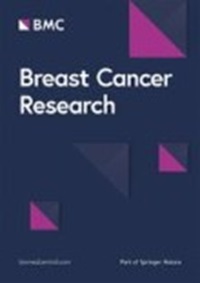Clustering of HR + /HER2− breast cancer in an Asian cohort is driven by immune phenotypes
IF 5.6
1区 医学
Q1 ONCOLOGY
引用次数: 0
Abstract
Breast cancer exhibits significant heterogeneity, manifesting in various subtypes that are critical in guiding treatment decisions. This study aimed to investigate the existence of distinct subtypes of breast cancer within the Asian population, by analysing the transcriptomic profiles of 934 breast cancer patients from a Malaysian cohort. Our findings reveal that the HR + /HER2− breast cancer samples display a distinct clustering pattern based on immune phenotypes, rather than conforming to the conventional luminal A-luminal B paradigm previously reported in breast cancers from women of European descent. This suggests that the activation of the immune system may play a more important role in Asian HR + /HER2− breast cancer than has been previously recognized. Analysis of somatic mutations by whole exome sequencing showed that counter-intuitively, the cluster of HR + /HER2− samples exhibiting higher immune scores was associated with lower tumour mutational burden, lower homologous recombination deficiency scores, and fewer copy number aberrations, implicating the involvement of non-canonical tumour immune pathways. Further investigations are warranted to determine the underlying mechanisms of these pathways, with the potential to develop innovative immunotherapeutic approaches tailored to this specific patient population.亚洲队列中 HR + /HER2- 乳腺癌的聚集是由免疫表型驱动的
乳腺癌具有明显的异质性,表现为各种亚型,这对指导治疗决策至关重要。本研究旨在通过分析来自马来西亚队列的 934 名乳腺癌患者的转录组图谱,研究亚洲人群中是否存在不同的乳腺癌亚型。我们的研究结果表明,HR + /HER2-乳腺癌样本显示出基于免疫表型的独特聚类模式,而不符合之前在欧洲裔女性乳腺癌中报道的传统腔A-腔B范式。这表明,免疫系统的激活在亚洲 HR + /HER2- 乳腺癌中可能扮演着比以往认识到的更重要的角色。全外显子组测序对体细胞突变的分析表明,与直觉相反,HR + /HER2-样本群表现出较高的免疫评分与较低的肿瘤突变负荷、较低的同源重组缺陷评分和较少的拷贝数畸变有关,这意味着非经典肿瘤免疫途径的参与。有必要进一步研究确定这些途径的潜在机制,从而有可能开发出针对这一特定患者群体的创新免疫治疗方法。
本文章由计算机程序翻译,如有差异,请以英文原文为准。
求助全文
约1分钟内获得全文
求助全文
来源期刊

Breast Cancer Research
医学-肿瘤学
自引率
0.00%
发文量
76
期刊介绍:
Breast Cancer Research is an international, peer-reviewed online journal, publishing original research, reviews, editorials and reports. Open access research articles of exceptional interest are published in all areas of biology and medicine relevant to breast cancer, including normal mammary gland biology, with special emphasis on the genetic, biochemical, and cellular basis of breast cancer. In addition to basic research, the journal publishes preclinical, translational and clinical studies with a biological basis, including Phase I and Phase II trials.
 求助内容:
求助内容: 应助结果提醒方式:
应助结果提醒方式:


